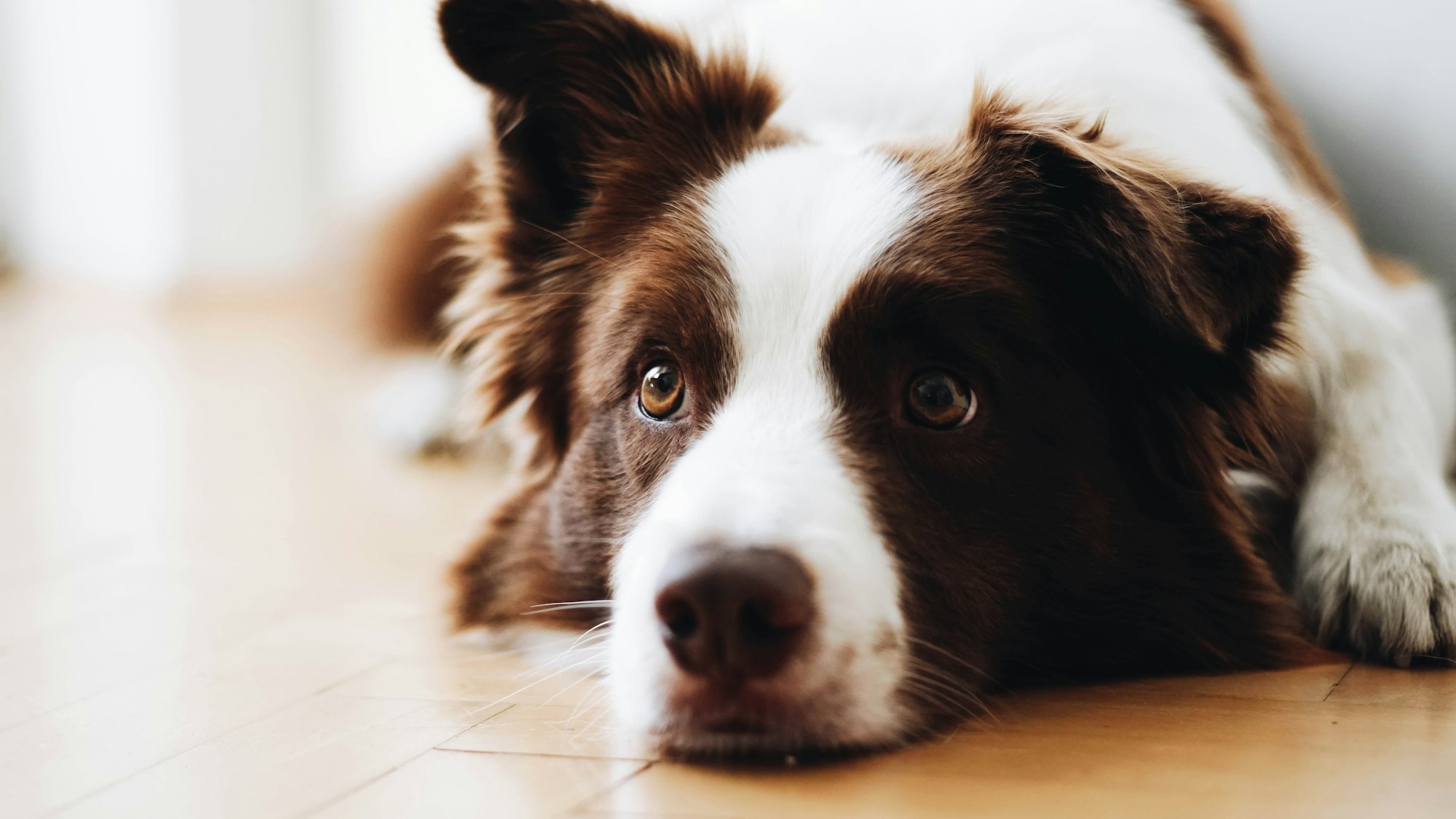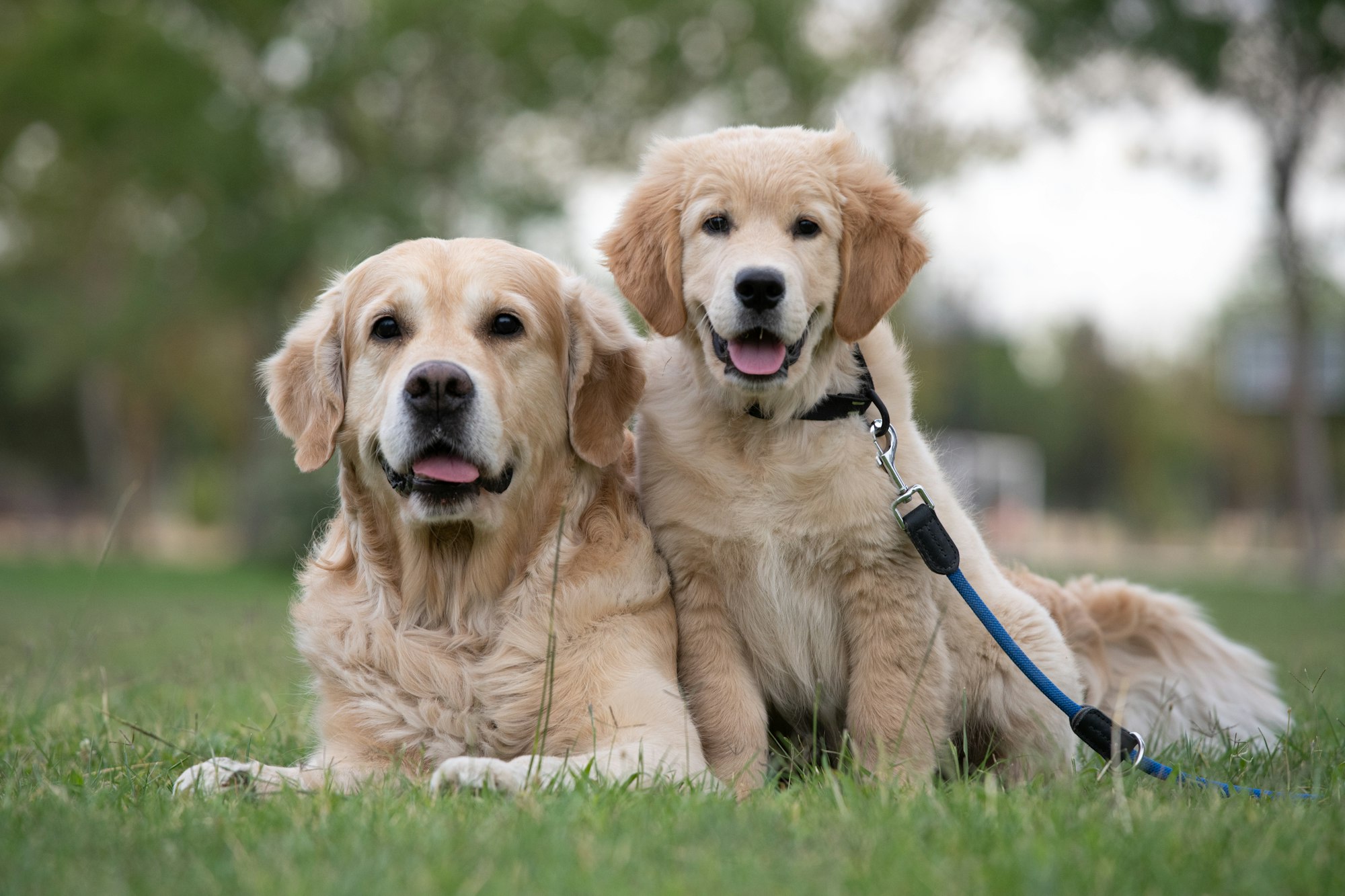Anxiety is not limited to humans; our canine companions can also experience this complex emotion. Just like us, dogs have unique personalities, and certain breeds are known for being particularly adept at providing comfort and support to those struggling with anxiety. In this guide, we'll explore the best dog breeds for anxiety, considering various factors that contribute to a calming and supportive canine companion.

Understanding Dog Breeds:
Dogs, our four-legged companions, come in an array of shapes, sizes, and personalities. It's like walking into a canine personality vault, each breed holding a unique set of characteristics that can either make them the perfect snuggle buddy or an energetic partner in crime.
You've got the spirited Border Collies, the regal Dachshunds, and the gentle giants like the Great Danes. But what makes each breed tick? Understanding dog breeds is the first step in finding that ideal furry friend, especially if you're on a quest to quell anxiety.
Decoding Different Breeds, Different Temperaments:
Picture this: Labrador Retrievers wagging their tails enthusiastically, German Shepherds standing tall with an air of confidence, and Chihuahuas peeking out from purses, ready to take on the world in their small but mighty way.
Why does it matter? Well, just as you wouldn't expect a sprinter to perform well in a marathon, knowing a breed's natural tendencies helps you align your expectations with your future furball's behavior.
How the Right Breed Can Help Alleviate Anxiety:
Now, let's talk anxiety. It's not just a human thing; our furry pals can feel it too. But fear not! The right dog breed can be your anxiety-busting sidekick, offering comfort, companionship, and a tail-wagging distraction from life's worries.
Imagine coming home to a dog that not only understands but intuitively senses when you need a cuddle. That's the magic of matching the right breed to your lifestyle and emotional needs.
Characteristics of Anxiety-Prone Breeds: The Nervous Nellies and Anxious Annies
Just like humans, some dogs are more predisposed to separation anxiety. It's not a judgment on their character; it's just the way they're wired. Knowing the signs and understanding which breeds tend to be a bit more on the anxious side can guide you in making the perfect match.
Breeds Known for Being More Anxious:
So, who are the Nervous Nellies of the dog world? Breeds like the Bichon Frise, Shih Tzu, and the sensitive Whippet are known to wear their hearts on their furry sleeves. It's not a bad thing – it just means they might need a little extra love and assurance.
Signs of Anxiety in Dogs:
Dogs can't tell us when they're feeling uneasy, but they sure can show it. Excessive barking, destructive chewing, or withdrawing from social interactions are common signs. It's their way of saying, "Hey, I need a little help here."
Understanding these signs and knowing which breeds may be more prone to them sets the stage for creating a supportive environment for your furry friend.
In the next segment, we'll dive into the superheroes of the canine world – the breeds that excel at soothing anxiety and providing a paw to lean on. Ready to meet your potential anxiety-busting sidekick? Let's find out who they are!
Top Dog Breeds for Anxiety:
Alright, now that we've laid the groundwork on understanding dog breeds and recognizing anxiety-prone traits, let's dive into the heroines and heroes of the canine world. These are the breeds that don't just fetch balls; they fetch a sense of calm, comfort, and unbridled joy. Here are your top picks for anxiety-soothing sidekicks:
1. Labrador Retrievers: The Comforting Companions
- Labradors, those lovable goofballs, aren't just experts at fetching your slippers. They're also masters at fetching your worries away. With their gentle nature and unwavering loyalty, Labradors are often hailed as top-tier therapy dogs. They're the friends who'll stick by your side, no matter what storms life throws your way.
2. Cavalier King Charles Spaniels: Small Size, Big Heart
- Don't let their size fool you – these little heartwarmers pack a punch of love. Cavalier King Charles Spaniels are not only adorable but also incredibly affectionate. Their small stature makes them ideal for indoor living, ensuring you have a constant companion ready to snuggle away your anxieties.
3. Golden Retrievers: Sunshine on Four Legs
- When you think of the word 'friendly,' a Golden Retriever probably comes to mind. These sunshine-colored furballs aren't just aesthetically pleasing; they have a heart of gold. Golden Retrievers are known for their friendly demeanor and make exceptional emotional support animals, providing warmth and comfort in abundance.

4. German Shepherds: Protective and Supportive
- German Shepherds, with their striking presence and unwavering loyalty, are not just excellent guard dogs. They're also your guardians against anxiety. Known for their protective instincts and strong bonds with their owners, these majestic dogs offer a sense of security that can be incredibly reassuring.
5. French Bulldogs: The Calm Cuddlers
- French Bulldogs, with their bat-like ears and charming personalities, are more than just Instagram models. They are calm cuddlers, adaptable to various living situations. Their easygoing nature makes them perfect for providing a soothing presence, whether you're binge-watching your favorite show or weathering a stressful day.
Now, you might be wondering, "But how do I know which of these fabulous breeds is the one for me?" Fear not! In the next section, we'll delve into individual preferences and lifestyle considerations. It's like matchmaking but with fur, and trust me, it's a game-changer in the quest for a stress-relieving canine companion. Stay tuned!
Individual Preferences and Lifestyle:
Choosing the perfect furry friend isn't just about finding a breed that looks adorable in photos. It's about aligning personalities and lifestyles, ensuring a harmonious coexistence. Let's unravel the magic of tailoring your choice based on individual preferences and lifestyle.
Matching Breeds with Owners' Activity Levels:
Picture this: You, a coffee-in-hand morning person, might not jive well with a breed that thinks sunrise is the middle of the night. Understanding a breed's energy levels is key. High-energy breeds like Border Collies or Dalmatians thrive with active owners, while more laid-back breeds like Bulldogs may be your Netflix binge partner.
Considerations for Apartment Living vs. Houses:
Living in a cozy apartment? Breeds like French Bulldogs, Pugs, or Cavalier King Charles Spaniels make excellent apartment companions. Their compact size and moderate exercise needs can seamlessly blend with apartment living. On the flip side, if you've got a spacious yard, larger breeds like Labradors or Golden Retrievers might feel right at home.
Training and Socialization: Unleashing the Best in Your Pooch
Now that you've got a breed in mind, it's time to talk about the key to a well-behaved and anxiety-free dog: training and socialization.
The Role of Training in Anxiety Reduction:
Training isn't just about teaching your dog to sit and stay. It's a powerful tool in curbing anxiety. A well-trained dog understands boundaries, knows what to expect, and is less likely to succumb to stress triggers. It's like giving them a playbook for navigating life with confidence.
Socialization Tips for Anxiety-Prone Breeds:
Just like humans, dogs need social connections too. For anxiety-prone breeds, gradual exposure to different environments, people, and other furry friends can build their confidence. Whether it's a stroll in the park or a puppy playdate, socialization is the secret sauce to a well-adjusted and anxiety-resistant pooch.
Creating a Safe Haven: Crafting Your Dog's Comfortable Environment
You've got the right breed, nailed the training, now it's time to focus on the environment. Dogs, much like us, thrive in a space that feels secure and comfortable.
The Importance of a Safe and Secure Space:
Create a designated safe haven for your furry friend. Whether it's a cozy dog bed in the corner or a favorite blanket in a quiet room, having a space they can call their own provides a retreat during stressful times. It's like their version of a spa day.
Tools and Accessories for Anxiety Relief:
Consider investing in tools like calming diffusers, anxiety wraps, or interactive toys. These can be game-changers in providing mental stimulation and alleviating anxiety. Think of it as giving your dog their own stress-relief toolkit.
Exercise and Playtime:
Alright, buckle up, because in this segment, we're talking about the magic potion for a happy and anxiety-free pooch – exercise and playtime. It's not just about burning off energy; it's about keeping those tails wagging and spirits soaring.
How Physical Activity Affects Anxiety Levels:
Ever notice how a dog's eyes light up when you mention a walk or a game of fetch? That's because physical activity is a natural stress buster. Regular exercise releases endorphins, those feel-good hormones that can turn a 'ruff' day into a tail-wagging success.
Interactive Games for Mental Stimulation:
Exercise isn't just about running in circles (although that's pretty fun too). Engage your furry friend's mind with interactive games like puzzle toys or hide-and-seek. It's like giving them a mental workout that leaves them content and, dare I say, a bit proud of their problem-solving skills.
Routine and Consistency: The Bedrock of a Calm Canine Life
Now that we've got the fun stuff covered, let's talk about the bedrock of a calm and collected canine life – routine and consistency.
The Calming Effect of a Predictable Schedule:
Dogs thrive on routine. Knowing what to expect gives them a sense of security, and security is the kryptonite to anxiety. From feeding times to walks and playtime, establishing a predictable schedule can do wonders in creating a calm environment.
Incorporating Routine into Daily Life:
Make routine a part of your daily life. It doesn't have to be military precision, but having a general structure can provide your dog with a sense of order. Plus, it makes your life easier too – no more wondering if you already fed Fido!
When to Call in the Pros: Veterinary Assistance
Despite our best efforts, sometimes our furry friends need a little extra help. That's where veterinary assistance comes into play.
When to Seek Professional Help:
If you notice persistent signs of anxiety, such as excessive barking, destructive behavior, or withdrawal, it's time to consult the pros. Veterinary professionals can assess the situation and recommend tailored solutions, whether it's behavioral therapy or medication.
Medications and Therapies for Anxious Dogs:
Just like humans, dogs can benefit from medications and therapies to manage anxiety. Your vet might suggest calming supplements, prescription medications, or even referral to a canine behaviorist. It's all about finding the right combination for your unique furry friend.
Real-life Stories:
Let's dive into the heartwarming realm of real-life stories – tales of tails, triumphs, and the incredible bond between humans and their anxiety-prone furry companions.
Success Stories of Anxiety-Prone Dogs Finding the Right Breed:
Meet Max, the once-anxious Bichon Frise who found solace in the calming presence of a Cavalier King Charles Spaniel companion. Their friendship blossomed, and Max's anxious tendencies gradually melted away, proving that the right breed match can be a game-changer.
Or consider Bella, the French Bulldog who went from nervously pacing to peacefully napping after her owner adopted a routine that included regular exercise and interactive play. These stories are living proof that the right combination of love, care, and understanding can transform an anxious pup into a happy, tail-wagging family member.
The Impact of the Bond Between Owner and Dog:
The magic isn't just in the breed; it's in the bond. Real-life stories highlight how the strong connection between owner and dog can be a powerful force in managing anxiety. Dogs are incredibly intuitive, often sensing their owners' emotions and responding with unwavering support.
In the next section, let's debunk some common myths surrounding anxiety in dogs, clearing the path for a deeper understanding of our canine companions.
Myths About Anxiety in Dogs: Separating Fact from Fiction
Dogs are mysterious creatures, and misconceptions about anxiety often swirl around like a game of telephone. Let's set the record straight on a few common myths.

Myth: Only Certain Breeds Experience Anxiety:
Fact: Anxiety can affect dogs of all breeds and sizes. While some breeds may be predisposed, individual temperament and life experiences play a significant role.
Myth: Anxiety is a Sign of a Bad or Poorly Trained Dog:
Fact: Anxiety is not a reflection of a dog's character or training. It's a complex emotion that can be influenced by various factors, including genetics, early life experiences, and health.
Myth: Comforting an Anxious Dog Reinforces the Behavior:
Fact: Providing comfort and reassurance to an anxious dog does not reinforce anxiety. In fact, it helps build trust and strengthens the bond between owner and pet.
Now that we've dispelled a few myths, let's move on to practical tips for those considering bringing a new furry family member into their homes.
Tips for Choosing a Breeder or Rescue: Navigating the Adoption Journey
Whether you're eyeing that adorable puppy from a breeder or considering a rescue dog with a unique tale to tell, choosing the right source is crucial. Here are some tips to guide you on your adoption journey.
What to Look for in a Breeder:
- Health Screening: Ensure the breeder conducts thorough health screenings for the parent dogs.
- Environment: A clean and safe environment is indicative of responsible breeding practices.
- References: Don't hesitate to ask for references from previous buyers to get insights into the breeder's reputation.
The Benefits of Adopting from a Rescue:
- Behavioral Insights: Rescues often provide valuable insights into a dog's behavior, helping match you with the right companion.
- Saving a Life: Adoption from a rescue gives a second chance to a dog in need, creating a profound impact on both the pet and the owner.
With these tips, you're well-equipped to embark on the journey of finding your perfect canine companion. As we wrap up this guide, let's conclude with a summary of the importance of choosing the right breed and the positive impact it can have on anxiety management.
Conclusion:
Choosing the best dog breed for anxiety is a personal journey that involves considering both the characteristics of the breed and the individual needs and lifestyle of the owner. The positive impact of a well-matched dog can be profound, providing comfort, support, and unconditional love.
FAQs:
- Q1: Can any dog breed help with anxiety?
- While any dog can provide companionship, certain breeds are known for their calming and supportive nature.
- Q2: How important is training in reducing anxiety in dogs?
- Training plays a crucial role in establishing a strong bond and reducing anxiety in dogs.
- Q3: Are there specific signs of anxiety to look for in dogs?
- Yes, signs include excessive barking, destructive behavior, and withdrawal from social interactions.
- Q4: Can adopting from a rescue help with anxiety-prone dogs?
- Yes, rescues often provide detailed insights into a dog's temperament, helping match them with the right owner.
- Q5: What if my lifestyle changes after getting a dog?
- Adapting your routine and lifestyle to your dog's needs is essential; consistency is key in reducing anxiety.